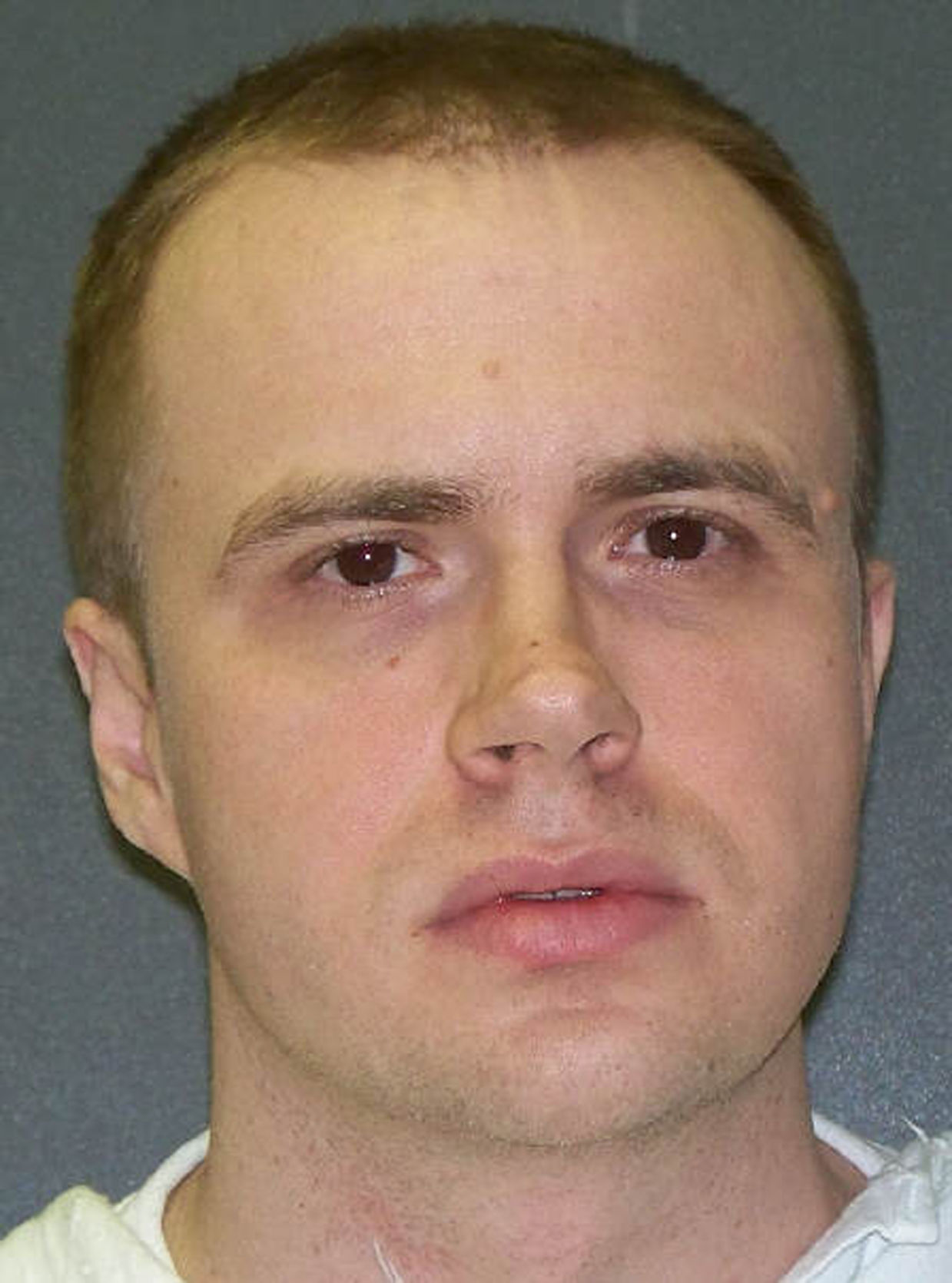HUNTSVILLE, Texas (AP) — A Texas death row inmate who sued unsuccessfully to try to halt his execution, arguing that more DNA testing needed to be done, is now trying to convince the U.S. Supreme Court to stop the punishment
HUNTSVILLE, Texas (AP) — A Texas death row inmate who sued unsuccessfully to try to halt his execution, arguing that more DNA testing needed to be done, is now trying to convince the U.S. Supreme Court to stop the punishment scheduled for Thursday.
Robert Pruett was already serving 99 years for a neighbor’s killing when he was convicted in the death of a prison guard who was stabbed in an attack that prosecutors say stemmed from a dispute over a peanut butter sandwich. Pruett wanted to take the sandwich into a recreation yard against prison rules, they said. An autopsy showed corrections officer Daniel Nagle died of a heart attack brought on by the December 1999 stabbing.
Pruett, 38, has insisted he’s innocent of Nagle’s death at the McConnell Unit near Beeville, about 85 miles (136 kilometers) southeast of San Antonio. He would become the sixth prisoner executed this year in Texas, which carries out the death penalty more than any other states. Texas executed a total of seven inmates last year.
Pruett avoided execution in April 2015 when a state judge halted his punishment just hours before he could have been taken to the death chamber. His lawyers had convinced the judge that new DNA tests needed to be conducted on the tape-wrapped, 7-inch sharpened steel rod used to repeatedly stab the 37-year-old Nagle. The new tests showed no DNA on the tape but uncovered DNA on the rod from an unknown female who authorities said likely handled the shank during the appeals process after the original tests in 2002. The execution was put on the schedule again.
After seeking even more DNA testing and being rejected by the courts, Pruett’s attorneys filed a federal civil rights lawsuit in August in which they argued that the courts denied Pruett due process. The lawyers asked the federal courts to halt the rescheduled execution, allow the additional DNA testing and then check the results for matches in law enforcement databases.
Last week, the 5th U.S. Circuit Court of Appeals rejected the lawsuit. But Pruett’s attorneys appealed to the U.S. Supreme Court on Tuesday, arguing that a lower court judge wrongly rejected the case after sitting on it for two months.
In a second appeal to the Supreme Court, also filed on Tuesday, the attorneys asked the high court to revisit the question of whether it is constitutional to execute a prisoner who claims actual innocence in federal court because of newly discovered evidence after exhausting all other appeals. Supreme Court justices in 1993 ruled 6-3 in a Texas case that it was constitutional to do so.
State attorneys say Pruett’s lawyers have long engaged in “a pattern of delay.”
No physical evidence tied Pruett to Nagle’s death. At his 2002 trial, prisoners testified that they saw Pruett attack Nagle or heard him talk about wanting to kill the guard. According to some of the testimony, he talked about possessing a weapon as well.
Pruett has said he was framed and that Nagle, an officer for more than three years, could have been killed by other inmates or corrupt officers at the McConnell Unit.
“I never killed nobody in my life,” Pruett testified at his trial. He said he was in a gym when he learned the officer had been stabbed.
Pruett’s 99-year murder sentence that he was already serving was for participating at age 15 with his father and a brother in the 1995 stabbing death of a 29-year-old neighbor, Raymond Yarbrough, at the man’s trailer home in Channelview, just east of Houston. Pruett’s father, 70-year-old Howard Pruett, is serving life in prison. His brother, 47-year-old Howard Pruett Jr., was sentenced to 40 years.
———
Sign up for the AP’s weekly newsletter showcasing our best reporting from the Midwest and Texas: http://apne.ws/2u1RMfv


